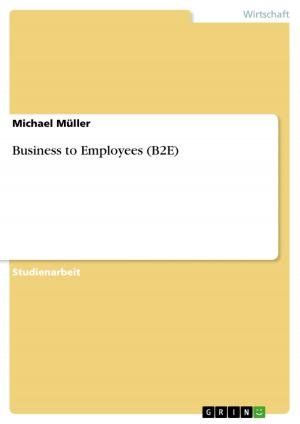A Critique of Society? J. D. Salinger's 'The Catcher in the Rye' (1951)
Fiction & Literature, Literary Theory & Criticism, British| Author: | Anonym | ISBN: | 9783656935773 |
| Publisher: | GRIN Verlag | Publication: | April 8, 2015 |
| Imprint: | GRIN Verlag | Language: | German |
| Author: | Anonym |
| ISBN: | 9783656935773 |
| Publisher: | GRIN Verlag |
| Publication: | April 8, 2015 |
| Imprint: | GRIN Verlag |
| Language: | German |
Studienarbeit aus dem Jahr 2013 im Fachbereich Anglistik - Literatur, Note: 3,0, Bayerische Julius-Maximilians-Universität Würzburg, Sprache: Deutsch, Abstract: Having read 'The Catcher in the Rye' one really feels like understanding the protagonist, Holden Caulfield. It seems like J.D. Salinger succeeds in depicting the problems of a 16-year-old boy in a post-World War II setting. He captures 'the pressures and tensions of prep school life, the confusions of late adolescence, the quest for a vaguely defined religious purity, or the contradictions that result when its protagonist too neatly divides the world into phonies [...] and the pure spirit.' (Pinsker XV) It is one of the best selling books of all time selling 'more than 60million copies worldwide and has remained a stalwart on school curricula since it was published in 1951.' (Longbottom) I think the reasons for its success are clear; adolescents from today still can identify with Holden's confusion with the adult world and his angst of growing up and changing. The novel was a highly controversial book from the day it was first published in 1951. It was banned in many countries and taken of the reading list from many schools. People who tried to ban the book often argued with the books language and said that its message was 'trash' (Pinsker 35) as the following excerpt of a letter Edward B. Jenkinson, a teacher and book author, received from an upset parent shows: ''You call yourself a Christian, but you're an atheist, a communist, and a smut peddler. Why do you insist on having children read four-letter words in school? Why do you want to fill their minds with trash? Why do you want to destroy America's children?'' (Pinsker 35) Is Salinger's The Catcher in the Rye a critique of the society surrounding Holden? That is the subject matter of this paper concerning preparatory schools, the dishonesty of adulthood, some important characters and the Museum of Natural History as depicted in the novel The Catcher in the Rye by J.D. Salinger.
Studienarbeit aus dem Jahr 2013 im Fachbereich Anglistik - Literatur, Note: 3,0, Bayerische Julius-Maximilians-Universität Würzburg, Sprache: Deutsch, Abstract: Having read 'The Catcher in the Rye' one really feels like understanding the protagonist, Holden Caulfield. It seems like J.D. Salinger succeeds in depicting the problems of a 16-year-old boy in a post-World War II setting. He captures 'the pressures and tensions of prep school life, the confusions of late adolescence, the quest for a vaguely defined religious purity, or the contradictions that result when its protagonist too neatly divides the world into phonies [...] and the pure spirit.' (Pinsker XV) It is one of the best selling books of all time selling 'more than 60million copies worldwide and has remained a stalwart on school curricula since it was published in 1951.' (Longbottom) I think the reasons for its success are clear; adolescents from today still can identify with Holden's confusion with the adult world and his angst of growing up and changing. The novel was a highly controversial book from the day it was first published in 1951. It was banned in many countries and taken of the reading list from many schools. People who tried to ban the book often argued with the books language and said that its message was 'trash' (Pinsker 35) as the following excerpt of a letter Edward B. Jenkinson, a teacher and book author, received from an upset parent shows: ''You call yourself a Christian, but you're an atheist, a communist, and a smut peddler. Why do you insist on having children read four-letter words in school? Why do you want to fill their minds with trash? Why do you want to destroy America's children?'' (Pinsker 35) Is Salinger's The Catcher in the Rye a critique of the society surrounding Holden? That is the subject matter of this paper concerning preparatory schools, the dishonesty of adulthood, some important characters and the Museum of Natural History as depicted in the novel The Catcher in the Rye by J.D. Salinger.















